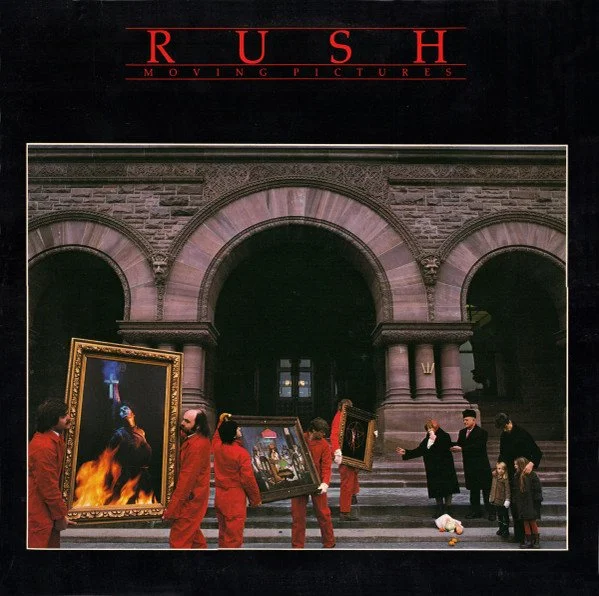When: Released February 12, 1981
Why? I’ve never heard a Rush album and am only familiar with some of the radio singles.
What? Seven songs, 40 minutes. This is Rush’s 8th studio album, and it is consistently ranked among the top five of all Rush albums. It includes two hit singles, “Tom Sawyer” and “Limelight.”
First Impressions: This was a really enjoyable—and surprising—listen. Enjoyable because the musicianship on display here is next-level and the lyrics are thoughtful and evocative. Surprising because I thought I could peg the band after the first two tracks, “Tom Sawyer” and “Red Barchetta”—jazz-tinged progressive rock built on science-fiction themes—only to have them move on to the challenges of fame, a street-level (and perfectly realized) portrait of two contrasting cities, the terrifying power of people who are “confident their ways are best,” and a reggae-influenced take on conformity and individuality. Add to that an instrumental dedicated to their home airport in Canada, and you have a decidely varied album of songs.
I liked every song here. The one I think I liked the least, though, is the album’s most popular track, “Tom Sawyer.” It’s well-written, and it’s no surprise that it has become the band’s signature song. I just don’t believe it works well within the context of this album. For me, the lyrics in “Tom Sawyer,” the only co-write here between drummer Neil Peart and nonmember Pye Dubois, stand out as too different in style from the other Peart- and band-written songs on the album. That said, it would be fair to point out that the subject matter of “Tom Sawyer,” with its focus on individualism and noncomformity, perfectly bookends the album with closer “Vital Signs.” So maybe that’s reason enough for its inclusion…?
Setting aside “Tom Sawyer,” each of the tracks here pulls its weight, delivering intriguing story-based or slice-of-life lyrics along with inventive musical arrangements, punctuated by tasteful synthesizer work. I was happily caught off-guard by the reggae influences on “Vital Signs.”
Vocalist and bassist Geddy Lee has said in at least one interview that the band gets bored sticking to one time signature for more than a couple of measures, and that’s certainly on display here; while the constant time changes help to keep things fresh, sometimes they do feel like they’re being done just to be done, that they don’t necessarily serve the song.
After hearing Rush singles for decades, Geddy Lee’s high-pitched vocals no longer annoy me (and I was glad to hear him drop down into a more normal vocal range for most of the album), his bass work is enthusiastic, Alex Lifeson’s guitars can go from understated to soaring, and I generally appreciated Neil Peart’s drumming (although, by the end of the album, his frequent tom rolls felt overly repetitive and predictable).
Favorite tracks include “YYZ,” “Limelight,” The Camera Eye,” and “Vital Signs.” Despite “The Camera Eye” being the longest track here, at just over 10 minutes, it never felt bloated or excessive to me; I was invested in its journey.
So? I knew Rush could play—and play well; a life spent reading music magazines has made that clear. But I was heartened to discover that Rush is not just about futuristic science fiction and that their songs are so thoughtfully constructed. I will certainly be spending more time with this album.
